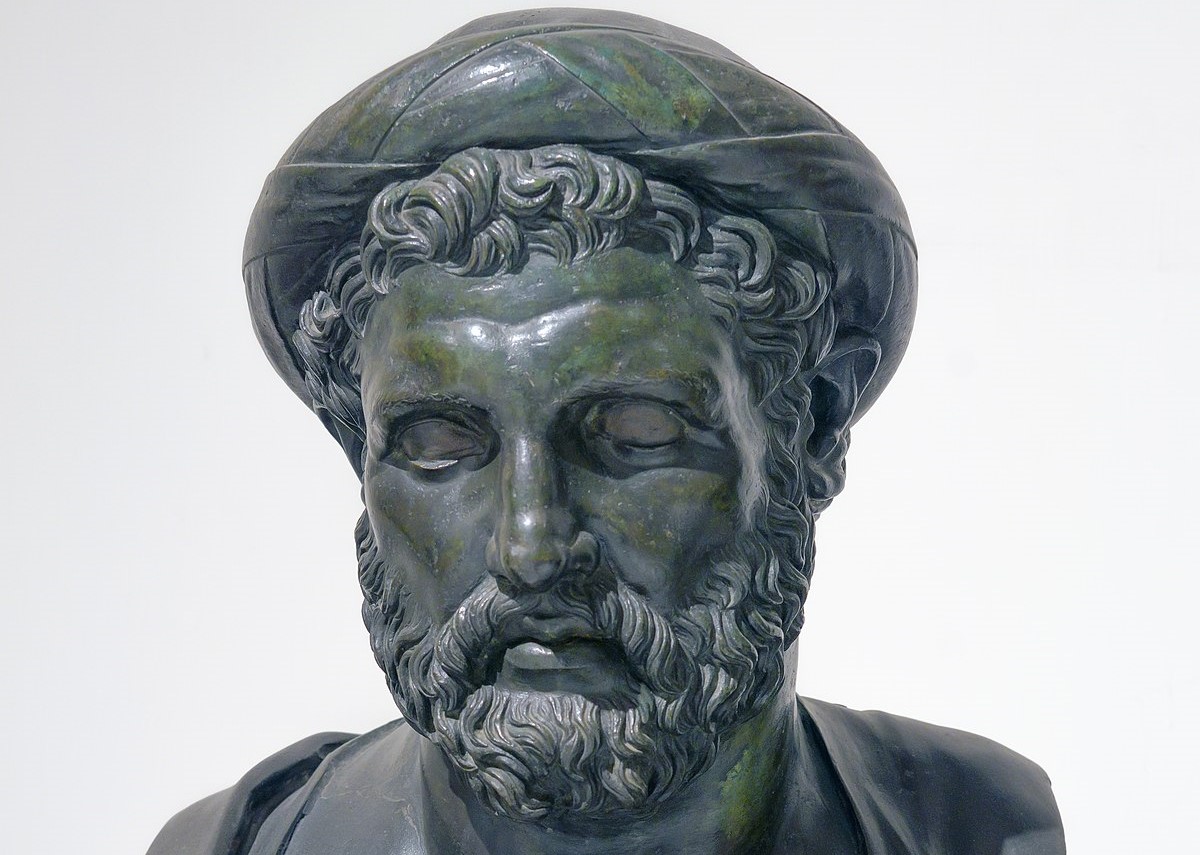He is the founder of mathematical mechanics: Who is Archytas (Tarantum)?
He believed that everything in the universe could be explained by numbers...

(4th century BC) Ancient Greek scholars, thinkers, and statesmen. He was born in Tarantum in Southern Italy. Since he was a Pythagoras, he had to flee to Greece when the reaction to the Pythagorasists in Italy. He became a student of Philolaos, who founded a school in Thebai. This school focused on the scientific aspect of Pythagoras. After a while, he returned to Italy, taking advantage of the tolerance of the changing administration to the Pythagorasists. He worked as a manager in Tarantum for about a year through his close relationship with Pla-Ton. Meanwhile, he served as a commander in the battles of Tarantum people with mutuals; He saved the city many times without siege. According to Horatius, he died in a sea accident in the Adriatic Sea.
Archytas (435/410–360/350 BC) was an Ancient Greek philosopher, mathematician, music theorist, astronomer, statesman, and strategist. He was a scientist of the Pythagorean school and famous for being the reputed founder of mathematical mechanics, as well as a good friend of Plato.
Archytas is counted from the second generation Pythagorasists. In addition to philosophy, his teacher Philolaos had a great influence on his orientation to his nature. Pythagoras, who lived in 500 BC, made the metaphysical theory that everything in the universe could be opened with numbers, the principle of mathematics, geometry, mechanics, and music. As Plato's close friend Plato stated in Timaios' dialogue, Archytas thought that the numbers, which were the source of all beings, were atoms of mathematics. According to this view, which is also supported by the doctrine of atomism of its contemporary Democritus, all geometric objects consist of points, points from the truth; Line surfaces and surfaces form volumes. Based on this phenomenon, Arkhitas put forward the problem of the existence of twice the Cuban and began to be mentioned among the great mathematicians of the 4th century BC. According to Eratosthenes, he resolved this problem with the intersection of the three surfaces. This problem was later simplified by Hippocrates of Khios. Arkhitas, who examined the characteristics of arithmetic and geometric series, pioneered the Eukleides geometry. It is possible to find traces from the work of Arkhitas on the 8th volume of Eukleides's Stoicheia (“Elements”).
Archytas was interested in music like almost all scholars of that age. Pythagorasists, who claimed that the oppositers exist in a harmony in the entire universe, thought that this harmony could be expressed in numbers. They argue that the gaps, and tones (such as giving and treble), which are elements of musical harmony, can be shown in a proportional system. They calculated the intervals of the diatonic array containing half and full sound ranges. Philolaos worked especially on octaves and harmony. Arkhitas calculated the chromatic array of only half sound ranges. In addition, he worked on a series of ancient Greek music, which formed the basis of ancient Greek music, and the half-voice ranges were divided at certain rates. Arkhitas found that the nature of the sound was caused by vibration, but with a mistake, the curtain of the sound changed depending on the speed of spreading.
Archytas, who was also considered the founder of mechanical science, made a wooden pigeon that could move on its own with steam or pressurized air. This invention, which is one of the first known automatic examples, followed other inventions that can work with water and various weights.
Archytas also tried to apply the theory of numbers to social relations. He tried to minimize the difference between the rich and the poor with a rational account system. For this, he developed a number of tax and election systems; In addition to this idea that he tried to realize with an idealist approach, the Pythagorasist view, which argues that the universe expanded endlessly, brought up the agenda. In his time, since there was a close relationship between the Tarantum School and Plato's Academia, the scientific findings and approaches of Arkhita also affected Plato. Arkhitas, who also engaged in astronomy, wrote many books in fields such as music, mathematics, astronomy, and philosophy such as the principles of goods, spirit, wisdom, morality, virtue, opposite, universals, and categories. In addition, he gave works on the concepts of education, agriculture, law, and justice. However, it is also possible that these works except mathematics will be the product of other writers.
